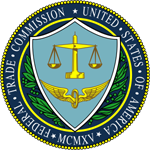FTC Changes For Internet Marketers Coming Up Fast Dec. 01, 2009

Internet Marketing Expert - Jim Edwards
I guess some webmasters will be busy over the weekend to update their sites if they have not taken action earlier.
But what is this all about anyway?
Why not ask an expert?
Jim Edwards did.

FTC - Federal Trade Commission
FTC (Federal Trade Commission) Clarifies New Internet Marketing, Blogging & Affiliate Advertising Guidelines With Jim Edwards (↑)
I strongly recommend you go over there and take opportunity to get this FREE information. Jim offers you 3 options.
- Webinar Video Replay
- Webinar Audio Replay
- PDF Transcript
(The PDF version is for Jim’s email subscribers only. But guess what, you can sign up for his list on the spot.)
Jim Edwards interviews Rich Cleland, Assistant Deputy FTC (↑)
In previous posts I have also written about those changes in guidelines from the Federal Trade Commission in the USA for Internet marketing practices. I also wrote about similar — even tighter — legislation for Internet marketers in the EU (European Union).
At this point I want to thank Andy Beard (↑) who mentioned this interview in his latest blog post, “Harder Facts About Comment Spam (↑).”
Take a legal notepad, some time in the evening and listen to that valuable information. Or at least get the PDF for later reference. No idea how long it will be online.
Enjoy the weekend.
Yours
John W. Furst


